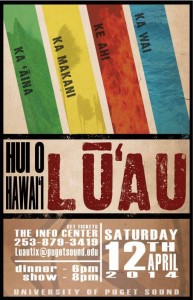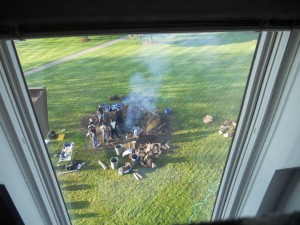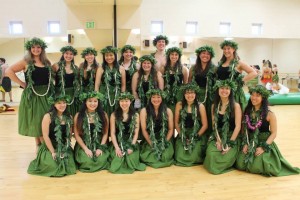In which the Puget Sound Theater Department simultaneously amazes and vaguely traumatizes Daniel.
Originally performed in 2004 as a staged reading in Greenwich Village, Bert V. Royal’s satirical drama Dog Sees God is the story of the characters of Charles M. Schultz’s Peanuts reimagined as teenagers. Centering around Charlie Brown – dubbed “CB” in this play – the characters are faced with eating disorders, homophobia, drugs, and an assortment of other adolescent troubles, struggling with their fears, doubts and one another.
These issues, and the realm of teenage angst in general, are ones to which I have a fairly strong aversion. Knowing that Royal’s play contained these themes while deciding whether or not to attend the University’s production of it, as part of the Theater Department’s Senior Theater Festival (a theater festival that acts as part of senior theater majors’ theses), I had great trepidations. But in the end, I thought that I wasn’t doing anything much better, and every show before this that the theater department had put on had been extremely impressive, so I took a chance.
In many ways, there was much for me to dislike about the show, most of which lay in the script itself. Given my adamant feelings against alcohol, I was inclined to dislike a play wherein several characters spend a majority of their time on stage consuming it or under its influence, and I am repelled by excessive, strong language. The script, though originally premiered in 2004, seems reminiscent to me of something from the 1990s, what with its lengthy, meandering monologues and melodramatic adolescent anger. Its inclusion of some more profound themes of God and existence seem oddly placed and rather forced.
Yet somehow, my experience at this play was, for lack of a better word, stunning. The wandering speeches and confusing, existential themes, which in another theater’s hands could have come across as nothing more than a pretentious stream-of-consciousness, were given with simultaneous derisive power and delicate sincerity. The lack of complex costumes – comprised mostly of jeans and T-shirts – or of elaborate set – comprised of several moveable black blocks and a doghouse– left the audience with little but the power of the script and the actors’ deliveries of it. This meant that, amid the sarcasm of the parody, moments of true anger, fear and tenderness (of which there are more than a few) cut through the show’s sad, drunk stupor like a knife.
Of these, the moment of the climax of the show cut through me the most by far (WARNING: SPOILERS AHEAD). Two of the main characters of the play – Beethoven, the reclusive, geeky, gay pianist incarnation of Schroeder, and Matt, the violent, germaphobic, homophobic incarnation of Pig-Pen – face off after years of Matt’s taunting and bullying of Beethoven, and when Matt threatens Beethoven’s life while he practices piano, Beethoven finally stands up against him. As Matt’s fury gathers, the stage darkens until all the lights focus solely on the piano at which Beethoven sits and Matt stands. Beethoven’s short outburst against his bully ends with him spitting the name “Pig-Pen” at Matt, who seizes Beethoven’s hands and smashes them over and over beneath the lid of the piano. Beethoven screams and screams as the stage goes to black.
In retrospect, I suppose that the force of my immediate reaction and the length of the time that those feelings remained with me were due to the climax being such a violation of my sense of justice. Fury, panic, fear, nausea, sadness and an amazing sense of having been preemptively defeated by the universe struck me and burned inside of me for the remainder of that week. These startlingly clear moments of honesty are, in my humble opinion (and let us be clear that I know almost nothing of the technicalities of theater), one of the strengths of the show that the school’s theater exploited to great effect. This production, then, was a testament to both the script’s heartbreaking, if sometimes awkward and forced, honesty, as well as the focus and clarity in direction of the school’s theater. It’s hard to come by something that can talk about issues like these so honestly, and while the show is by no means an accurate representation of high school (or college) as I know it, it’s good to know that someone is willing to step up to the plate for it all.



